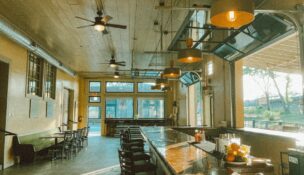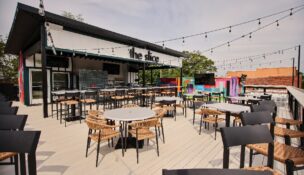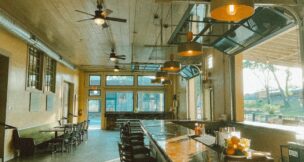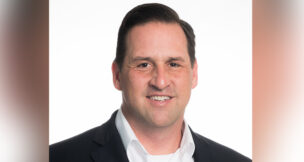

Why so many South Carolina restaurants, bars are closing
Krys Merryman //September 5, 2023//
A string of local Greenville restaurants has announced closings within the last few months.
Although there are a number of reasons for the closings, a reason often cited is the rising cost of liquor liability insurance in South Carolina.
The rise in liquor liability insurance costs has been spurred by a string of alcohol-related incidents in the state just this year.
On April 28, bride Samantha Miller was hit by an accused drunk driver and killed on the night of her wedding in Folly Beach.
Miller’s groom blamed four local bars for negligently serving alcohol to the 25-year-old driver who hit Miller and injured the groom and two others, according to the lawsuit.
The complaint claimed the bars breached their duties of care to the public and patrons when they supplied Komoroski with alcohol that night after they knew, or should have been aware, that she was drunk.
South Carolina statute prohibits establishments with permits to sell alcohol, beer or wine from serving patrons who are or appear to be overly intoxicated.
The prosecutor in the Samantha Miller case is listing everyone who served Komoroski a drink on April 28, the general managers, and each establishment as defendants, said Chef John Malik, an Upstate restaurant coach.
How a single case affected the Upstate
In June, Brewery 85 announced it would close its doors after a decade in business. Although founder Will McCameron didn’t state a reason for the closing, the closing came a few short months following the Folly Beach case.
The Powdersville Pub announced on June 1 they would be closed until further notice specifically due to liquor liability insurance changes, in which their social media post read:
“I’m sure most of you have seen the news and media platforms discussing the insurance liability crisis that the small bars/music venues are facing. Well, it has now affected us! I have fought, tooth and nail, for the last six months to get help and find a successful solution, but that solution just hasn’t come quick enough. We are hopeful that this closure will only be temporary but unfortunately we are at the mercy of the state authorities and lawmakers.”
After nearly 17 years, Smiley’s Acoustic Café in downtown Greenville’s West End closed its doors this summer because of insurance costs.
After being open less than a year in Greenville’s Overbrook neighborhood, Perch Gastropub’s co-owner Lindsay Johnson confirmed their last day of business was Aug. 5.
“We have made the tough decision to close our wonderful pub,” a post said. “As ‘complicated’ as business is, it really is about ins and outs. As hard as we have tried, the ins don’t meet the outs. The passion and energy this team has put into this will be unmatched. This choice hasn’t come based on one factor, it’s just simply this part of the business that we all never see coming.”
Johnson said they have no further comment at this time.
Greenville Chamber Senior Vice President of Business Advocacy and Upstate Chamber Coalition Executive Director Jason Zacher said the issue is a direct result of the General Assembly not tackling the problem of joint and several liability.
“When businesses that are responsible for a small part of a legal action can shoulder 100% of the verdict damages, it will cost dramatically more to do business in our state,” said Zacher. “Reforming these laws has been a priority for the Greenville Chamber since 2016, and we have worked closely with business association partners throughout the state.”
Some insurers have pulled out of the state and caused many others to increase their rates, he added.
Malik said there are now only two insurance providers in the state that will carry restaurants and bars, which has caused the providers to hike up rates by 15-20% for insurance liability coverage.
“The issue is when there’s a legal incident stemming from a DUI, every establishment that served the defendant can be sued,” said Malik. “When that happens and it comes to trial, the jury will not be allowed to know that the plaintiff scores a monetary victory from another defendant. That’s what has to change. The level of responsibility for the establishment in the event of an incident.”
The state mandated $1 million in liquor liability insurance coverage, said Malik, and the amount the business pays depends on how much alcohol is sold versus how much food is served.
According to a change.org petition started by Kynn Tribble:
“This year, small venues and many small businesses have been hit again with these staggering, across-the-board insurance policy prices. Small bars, venues and restaurants across South Carolina are receiving quotes for policies costing $50,000 and higher! Many business owners in this situation have already started to close or attempt to sell. Unfortunately, selling may not even be an option due to those same insurance costs. We are at risk of losing our small, locally owned venues and bars.
“If our representatives ignore this dire situation, far too many small businesses, not just bars and venues, will fall one after another. The companies that do try to survive will be forced to raise prices again and again resulting in less customer frequency. Many family-owned businesses will collapse completely, giving way to more corporate chains.
“In this industry, the fallout will be a trickle-down effect from the venue and bar owners to staff losing their jobs. The employees affected include but are not limited to, bartenders, waitresses, cooks, busboys, sound engineers, door staff and bouncers. Bands and musicians will lose a long list of places to perform, many of whom play shows in smaller venues as their only source of income. Towns and cities will lose tax revenue and tourism dollars.”
By Tuesday morning the petition had collected 9,325 of the 10,000-signature goal.
“This punishes responsible small business owners and the hospitality industry that is the backbone of our community,” Zacher said.
















